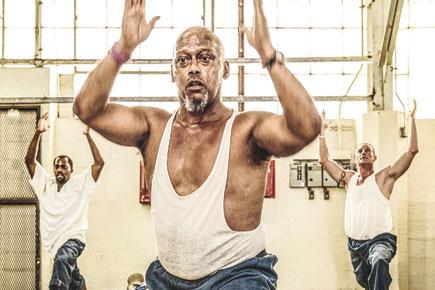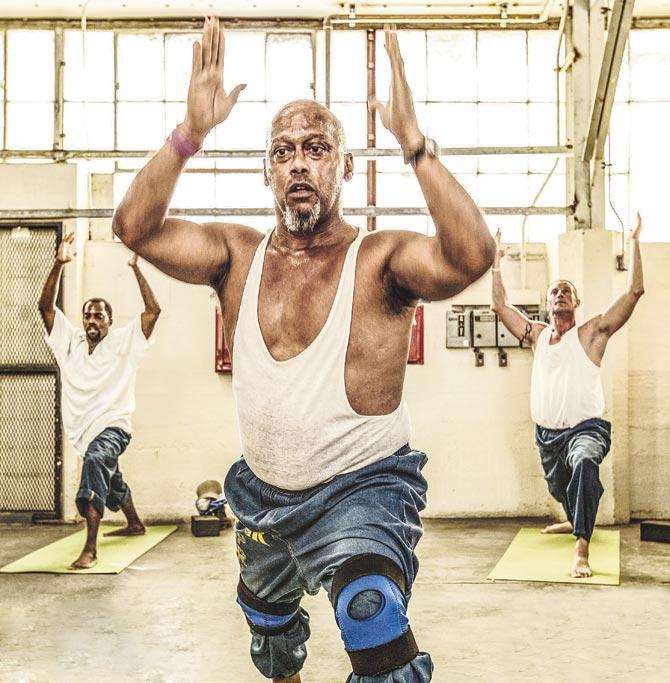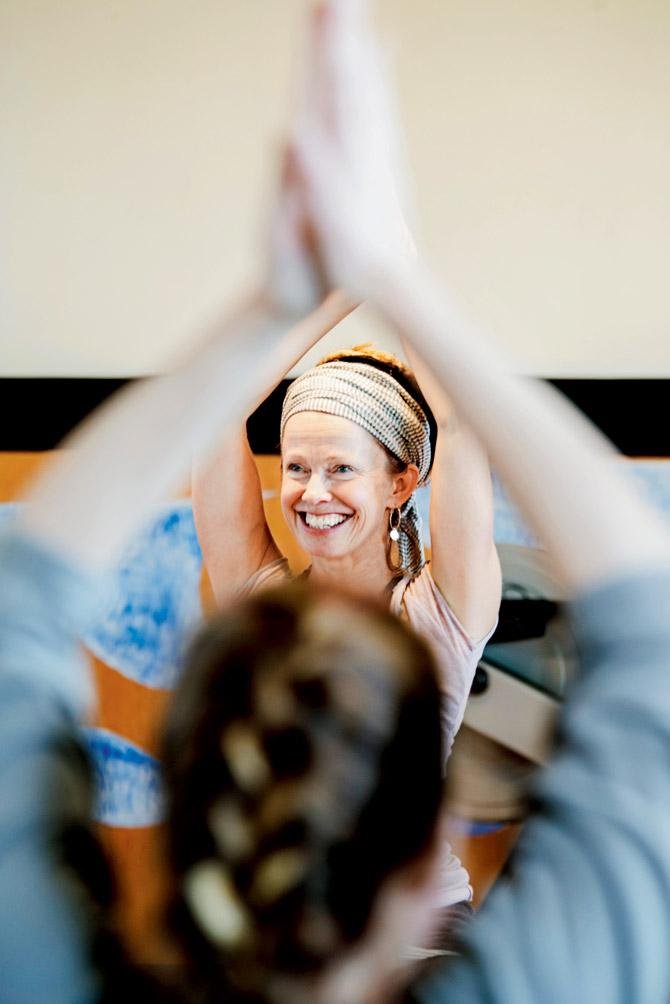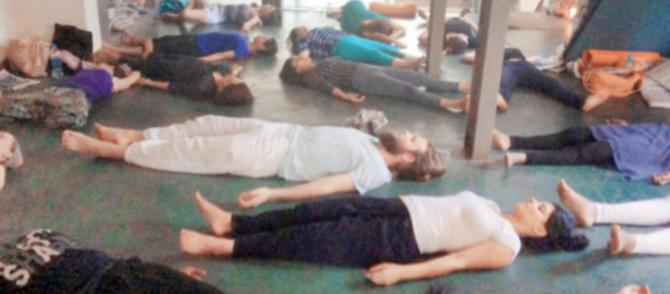Josefin Wikstrom who is one of Prison Yoga Project's international ambassadors, living part-time in India for the last 25 years, will conduct an upcoming workshop


Prisoners practising yoga at San Quentin State Prison, California in USA. Pic courtesy/Robert Sturman
ADVERTISEMENT
Last April, Rajesh Tulli, a 30-year-old certified Ashtanga yoga teacher from Nashik, was among 20 social workers, therapists and yoga practitioners from Mumbai, Delhi, Bengaluru, Switzerland, Holland and Brazil who were a part of a unique workshop held at Yoga 101, a studio and co-working space in Versova.
Equipped with the skills learnt at the workshop, Tulli ended up teaching yoga for a day in Nashik Central Jail. "I conducted a class with 50 prisoners on basic asanas and pranayam (breathing exercises) since most of them suffered from short temper," shares Tulli, who plans to return to Mumbai for the second edition of the two-day intensive workshop, to be held on March 11 and 12 at the same studio. Priced at Rs 2,000, it offers certificate training for all those interested in working with at-risk population, including the incarcerated.

Josefin Wikstrom teaches yoga in the high-security Hinseberg's prison for women in Sweden. Pic courtesy/Henrik Witt
Yoga behind bars
The workshop is part of the Mumbai chapter of the Prison Yoga Project (PYP), a non-profit founded by James Fox at San Quentin Prison in the USA back in 2002. The project was launched with the belief that yoga, when taught specifically as a mindfulness, trauma-informed practice, is effective in releasing unresolved trauma, allowing one to address the resultant behavioural issues. With communities in USA, Canada, Mexico, Norway, Sweden, Germany and India too, PYP has produced over 1,500 trained teachers replicating its methodology in prisons.

Participants practise Shavasana at the earlier edition of workshop held in Mumbai
Josefin Wikstrom, a 44-year-old Swedish yoga practitioner, who is one of PYP's international ambassadors, living part-time in India for the last 25 years, will conduct the upcoming workshop. "Most prisoners suffer from chronic interpersonal trauma experienced early in life. This includes abandonment, hunger, sexual abuse, drug and alcohol abuse, and witnessing crime — including murder. We use the yoga practice to increase sensitivity toward oneself, empathy for others, leading to compassion.
Many prisoners may have committed horrible crimes but at the end of the day, we would want healed persons, who take responsibility for their own actions and feel remorse, to be released back in society," shares Wikström, who has taught yoga in high-security prisons for women in Sweden and has developed new trauma-informed yoga manuals for the Swedish prison system with PYP colleagues in collaboration with Fox. Currently, she is working closely with Sumeet Nagdev Dance Arts and their Ahsas project, with the aim to share dance as a healing activity with underprivileged children.
What's the content?
Yoga for prisoners differs from regular yoga workshops. "We use evidence-based methods and a set structure to reinstall a sense of control, freedom and safety among prisoners. We use different pranayama techniques to activate the relaxation response. The asanas address muscle groups that tense due to chronic stress such as the psoas muscle (connect the spine to legs), the deep hip flexor and the area around the ribcage. The classes end with alternate-nostril breath to balance the nervous system before entering the stressful prison environment after guided relaxation," shares Wikstrom.
PYP has also developed special practices that cater to space-crunched Indian prisons. "I will teach practices that prisoners can do while sitting and some Dharana-focus practices along with breath awareness. We have also developed a small Kriya sequence to keep the immune system strong in a polluted environment. These include Jala Neti nose flushing, a form of Dhauti gum or tongue massaging/scraping," she adds.
Dance therapy
The course content also covers movement and dance therapy for women and children in Indian prisons. These have been developed in collaboration with Tripura Kashyap, a well-known dance therapist from Bengaluru. "The idea is to implement these methods, not only in prisons but also for victims of crime and other populations that are suffering from the negative effects post a trauma," she sums up.
 Subscribe today by clicking the link and stay updated with the latest news!" Click here!
Subscribe today by clicking the link and stay updated with the latest news!" Click here!






